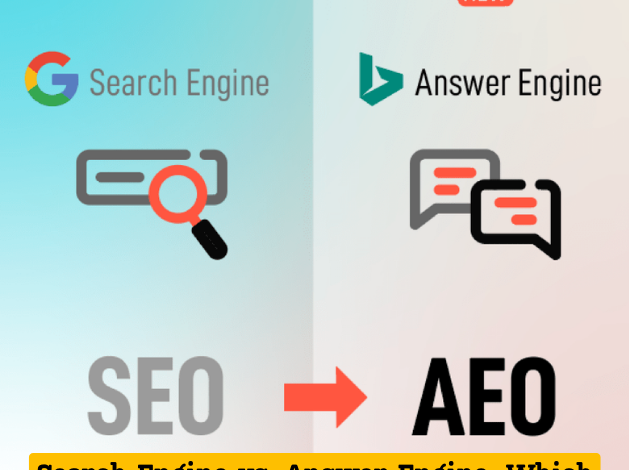Search Engine vs. Answer Engine: Which One Delivers Better Results?
In the ever-evolving landscape of digital information retrieval, the debate between search engines and answer engines has gained significant traction. Both technologies play crucial roles in delivering information to users, but they approach this task differently. This article explores the key differences between search engines and answer engines and assesses which technology might deliver better results for your needs.

Understanding Search Engines
Search engines are sophisticated tools designed to index and retrieve information from across the web. They use complex algorithms to rank pages and present results based on relevance and authority.
1. How Search Engines Work
- Crawling and Indexing: Search engines use web crawlers to browse the internet and index content. This vast database of indexed pages is queried when a user performs a search.
- Ranking Algorithms: The algorithms analyze various factors, such as keywords, site structure, and backlinks, to rank pages. This process helps determine which results are most relevant to the user’s query.
2. Advantages of Search Engines
- Broad Scope: Search engines provide access to a wide range of information from across the web, making them versatile tools for various queries.
- Updated Content: Search engines continuously update their indexes, ensuring that users receive the latest information and trends.
3. Limitations of Search Engines
- Relevance and Noise: Users may encounter irrelevant results or an overwhelming amount of information, requiring additional filtering to find precise answers.
- Query Complexity: Complex queries may not always return satisfactory results, as search engines prioritize broad relevance over specific answers.
Exploring Answer Engines
Answer engines are specialized tools designed to provide direct answers to user queries rather than a list of links. They focus on delivering precise and actionable information.
1. How Answer Engines Work
- Structured Data: Answer engines use structured data and natural language processing to understand and respond to queries. They extract answers from a curated knowledge base or trusted sources.
- Direct Responses: Instead of providing a list of web pages, answer engines aim to give a concise, direct response to the user’s question.
2. Advantages of Answer Engines
- Precision: Answer engines are designed to provide specific answers, reducing the need for users to sift through multiple sources to find relevant information.
- Efficiency: By delivering direct responses, answer engines save users time and streamline the search process.
3. Limitations of Answer Engines
- Limited Scope: Answer engines may not cover as broad a range of topics as search engines, potentially limiting the depth of information available.
- Dependence on Data Quality: The accuracy of answers depends on the quality and comprehensiveness of the data sources used by the engine.
Comparing Search Engines and Answer Engines
To determine which technology delivers better results, it is essential to consider various factors such as query type, user intent, and information needs.
1. Query Type and User Intent
- Search Engines: Ideal for broad queries where users seek a variety of perspectives or sources. They are suited for exploratory searches where the user wants to gather information from multiple sources.
- Answer Engines: Best for specific queries where users need quick, precise answers. They excel in providing straightforward responses to factual questions.
2. Information Needs and Efficiency
- Search Engines: Provide a comprehensive overview of available information, offering users a range of options and perspectives. They are effective for research and in-depth exploration.
- Answer Engines: Focus on efficiency by delivering concise answers quickly. They are particularly useful for fact-checking and resolving straightforward queries.
Which One Delivers Better Results?
The choice between a search engine and an answer engine depends on the context and nature of the query. Both technologies have their strengths and limitations, making them complementary tools rather than direct competitors.
For General and Exploratory Searches
Search engines are generally more suitable for general or exploratory searches where users need a broad range of information and multiple viewpoints. Their comprehensive indexing and ranking capabilities ensure that users can access a wide array of sources.
For Specific and Direct Queries
Answer engines excel in scenarios where users require specific, direct answers. They are ideal for resolving factual questions quickly and efficiently, providing a streamlined user experience.





